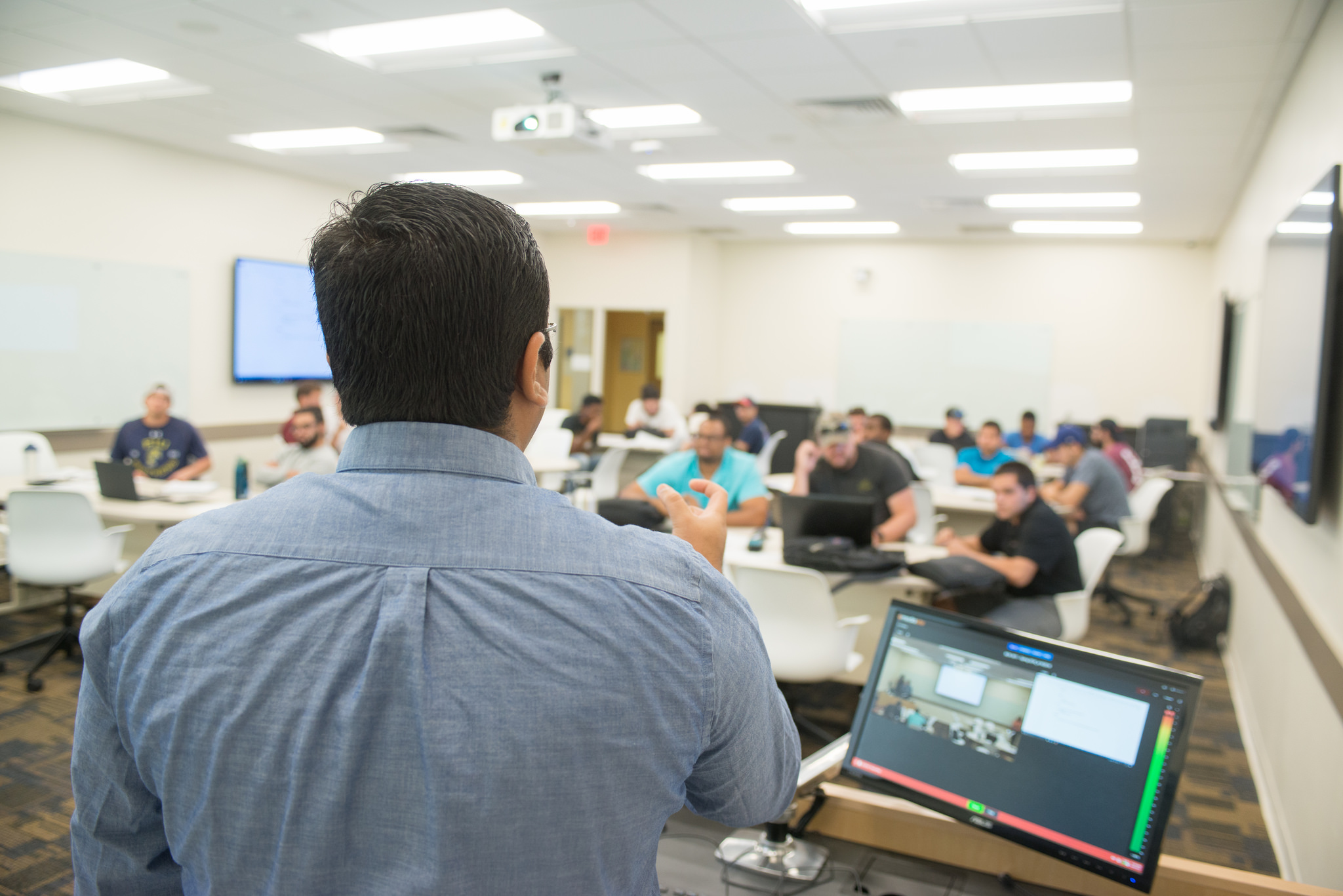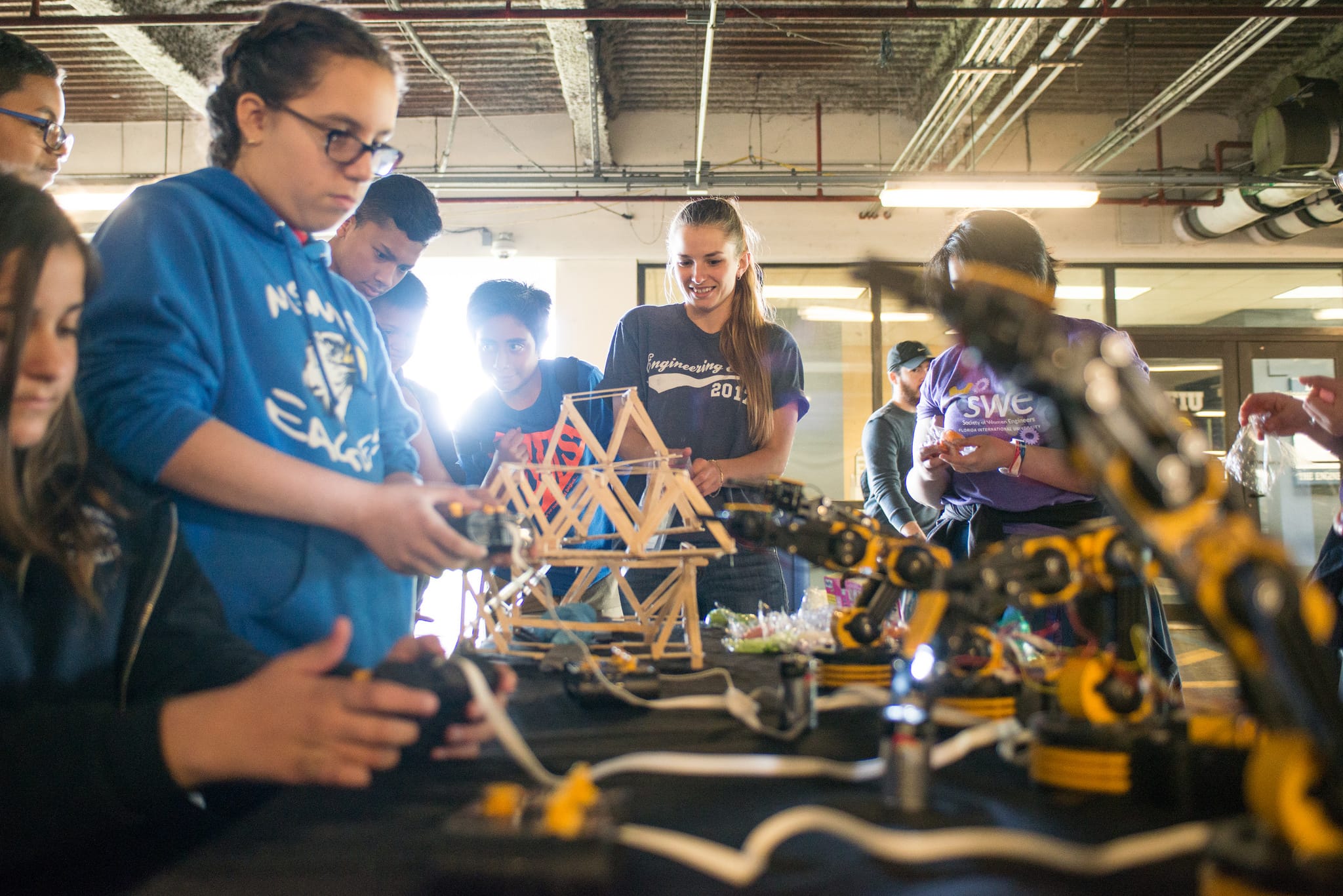
Degrees & Programs
The school plans to offer two new degrees:
- Bachelor of Science in Interdisciplinary Engineering - Interdisciplinary Engineering students are exposed to the basics of science and engineering, while also developing their skills as leaders, systems thinkers and engineering designers through engineering leadership and business courses as well as a projects-based course sequence.
- Doctorate in Engineering and Computing Education - Engineering and computing education doctoral students conduct and direct research in engineering and/or computing education. Students also develop skills as educators and address critical issues facing engineering and computing education. This program seeks to develop students for a diverse set of professional trajectories both inside and outside a university/college setting.
Please reach out to SUCCEED faculty for additional information.
Prospective Graduate Students
What is engineering and computing education research?
Ever wonder why your courses are designed the way they are? Why one concept is learned before the other? If a certain piece of technology or an activity are actually helping you learn the topic? Or, if there were better ways to prepare yourself and your classmates for your post-graduation career?
Ever think about how colleges or high schools could better support the experiences of all students? How educational policy changes or could change?
Ever consider how engineers and computer scientists collaborate with one another? How they make decisions in a fast-paced work environment? How they adapted to their new job after graduation?

Researchers in engineering and computing education research engage in projects to understand how people learn engineering and computing as well as how to improve instruction in engineering. Similar to researchers at FIU’s STEM Transformation Institute, engineering and computing education researchers explore a variety of topics, including but not limited to:
- Developing evidence-based practices for teaching courses in K-12, undergraduate and graduate school, could be face-to-face, hybrid and/or online
- Examining the experiences of students (at all levels), including but not limited to, their motivation in a given context, career pathway, identity development, skill development, etc.
- Exploring ways of thinking, knowing, and doing in engineering and computing (e.g., How do practicing engineers make decisions as they are designing something? How do engineers collaborate?)
- Designing a learning environment for students, staff, and educators
- Studying the larger educational systems (e.g., theories of change, leadership and policy within engineering and computing education)
Within engineering and computing education, we believe research on the teaching and learning of an academic discipline benefits from knowledge and expertise of the priorities, practices, and worldwide of that discipline.
Why an engineering and computing education at FIU?
Community
At FIU, discipline-based education research is part of the culture and many departments. Through the STEM Transformation Institute, the School of Education and Human Development, the Center for the Advancement of Teaching and now SUCCEED, students join a strong community of researchers. The structure of the program facilitates engagement with this community, which includes undergraduate, graduate and postdoctoral researchers from a variety of disciplines.
Connections to a local and global community
In Miami, the college has strong connections to the local community, including Miami-Dade and Broward county schools and local businesses. Miami, in addition, is an international hub, bringing together cultures from around the world and creating opportunities for impact both locally and globally.
Innovation
From Day One, students will be innovators in engineering and computing education as this school and program are co-created over the next several years. The collaborative research environment created by SUCCEED faculty and across campus enables students to conduct innovative research that prepares them for wherever their paths lead after FIU.
What do people do with a Ph.D. in Engineering and Computing Education?
Graduates of this program, like the alumni of other engineering education programs, can expect to work in a variety of fields and settings, including but not limited to:
- Faculty in an engineering education department or school
- Faculty in an engineering or computer science department at multiple institution types
- Administrators of engineering diversity programs, on-campus design centers, service-learning programs, first-year programs, etc.
- Research scientists in academia, government and industry
- Instructional designers at universities or in industry
- K-12 teachers
- Faculty, staff and administrator in a teaching and learning center
- Non-profit foundation staff
- Workforce development specialists & corporate trainers
- Consultants
- Designers for education-based products in industry
- Science museum staff
- Policymakers
- and many other positions requiring coordination of engineering, computing and education components.
Interested in pursuing this? Learning More?
Contact succeed@fiu.edufor more information.